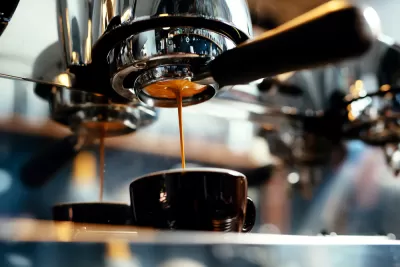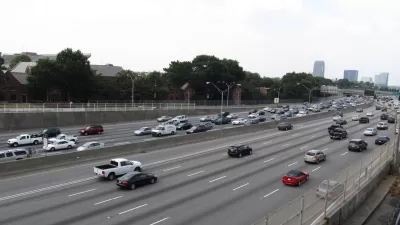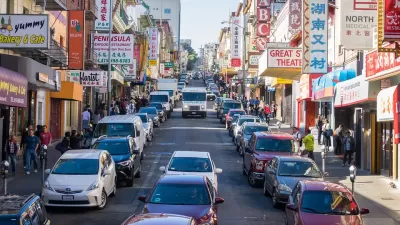The folks over at City Observatory brew up a "Cappuccino Congestion Index" to show that anything can be shown to cost Americans vast sums of money.

In a (partly) tongue-in-cheek analysis, Joe Cortright uses methods to estimate the cost of traffic congestion to examine another economic scourge: waiting in line for coffee. His grievance is clear. "It's annoying to queue up for anything, but traffic congestion has spawned a cottage industry of ginning up reports that transform our annoyance with waiting in lines into an imagined economic calamity."
Cortright writes, "we've applied the 'travel time index' created by the Texas Transportation Institute to measure the economic impact of this delay on American coffee drinkers [...] When you scale these estimates up to reflect the millions of Americans waiting in line for their needed caffeine each day, the total value of time lost to cappuccino congestion costs consumers more than $4 billion annually."
No one, Cortright says, expects Starbucks to scale up enough to eliminate its morning lines. "But strangely, when it comes to highways, we don't recognize the trivially small scale of the expected time savings (a minute or two per person) and we don't consider a kind of careful cost-benefit analysis that would tell us that very few transportation projects actually generate the kinds of sustained travel time savings that would make them economically worthwhile."
FULL STORY: The Cappuccino Congestion Index

Maui's Vacation Rental Debate Turns Ugly
Verbal attacks, misinformation campaigns and fistfights plague a high-stakes debate to convert thousands of vacation rentals into long-term housing.

Planetizen Federal Action Tracker
A weekly monitor of how Trump’s orders and actions are impacting planners and planning in America.

In Urban Planning, AI Prompting Could be the New Design Thinking
Creativity has long been key to great urban design. What if we see AI as our new creative partner?

How Trump's HUD Budget Proposal Would Harm Homelessness Response
Experts say the change to the HUD budget would make it more difficult to identify people who are homeless and connect them with services, and to prevent homelessness.

The Vast Potential of the Right-of-Way
One writer argues that the space between two building faces is the most important element of the built environment.

Florida Seniors Face Rising Homelessness Risk
High housing costs are pushing more seniors, many of them on a fixed income, into homelessness.
Urban Design for Planners 1: Software Tools
This six-course series explores essential urban design concepts using open source software and equips planners with the tools they need to participate fully in the urban design process.
Planning for Universal Design
Learn the tools for implementing Universal Design in planning regulations.
Gallatin County Department of Planning & Community Development
Heyer Gruel & Associates PA
JM Goldson LLC
City of Camden Redevelopment Agency
City of Astoria
Transportation Research & Education Center (TREC) at Portland State University
Jefferson Parish Government
Camden Redevelopment Agency
City of Claremont





























